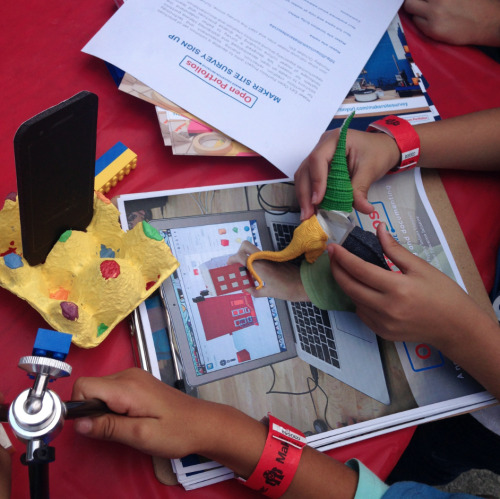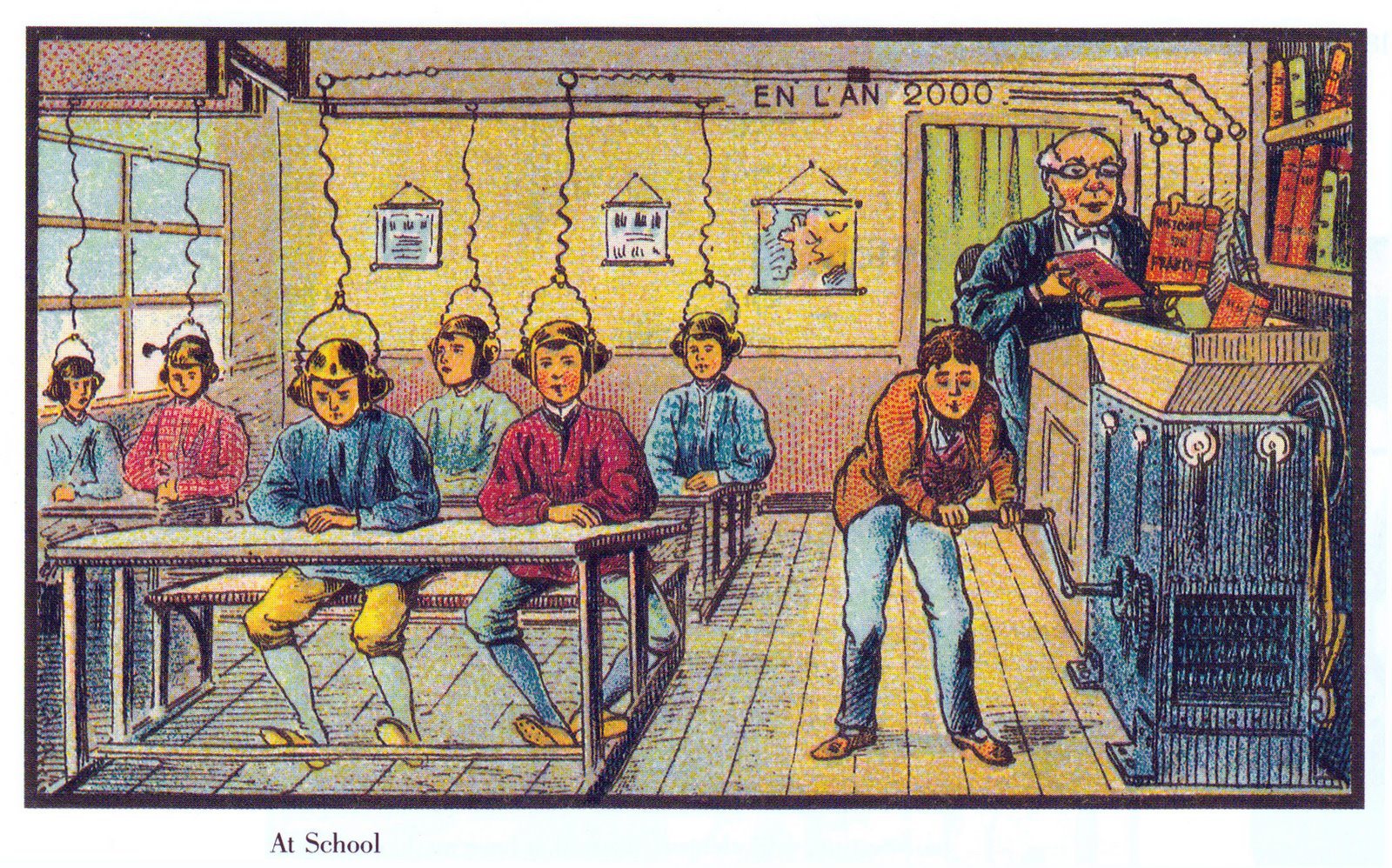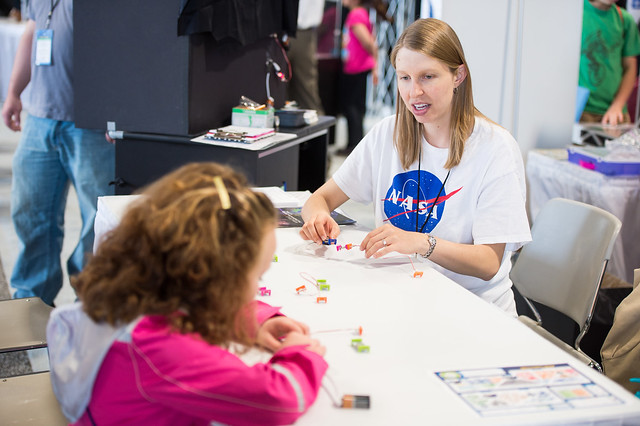The Atlantic published an article by Michael Godsey this morning entitled “The Deconstruction of the K-12 Teacher” – a real pot-stirrer for those of us who find ourselves trying to square how all of this data-driven driven, venture-capital-funded, business of edtech startups fits into the ramshackle behemoth of government-mandated curriculum, publicly demonized unions, and enduring inequity that is the education system. The article discusses the changing nature of teaching in a brave new world of flipped classrooms, personalized-learning apps, and high-quality instructional resources that are being shared (and sold) online for anyone. The problem with all this technology and access, it seems, is that it “marginalize[s] the teacher’s expertise.” Godsey predicts that in the next 10 to 20 years (some colleagues of his suggest it’s more like half of that, or 5 to 10 years), the quality of and access to educational tools and resources online will be so high that it will essentially eradicate the need for a teaching profession as we know it today. If Godsey’s prediction is correct (which I don’t think it is), I see two incredible tragedies resulting from this “brave new world” as he calls it. First, it would mean the loss of what many consider to be one of the most humanizing and noble occupations in our society. And second, it would mean that decades of reform efforts would have failed miserably in destabilizing our oft-criticized “factory model” of education. The former would be a tragedy for obvious reasons. The latter, however, is more complicated today, precisely for the points Godsey addresses.
Archive | Design Research Blog Posts
RSS feed for this sectionAll blog posts syndicated related to Design Research
A Response to Godsey’s “Deconstructing the K-12 Teacher”
The Atlantic published an article by Michael Godsey this morning entitled “The Deconstruction of the K-12 Teacher” – a real pot-stirrer for those of us who find ourselves trying to square how all of this data-driven driven, venture-capital-funded, business of edtech startups fits into the ramshackle behemoth of government-mandated curriculum, publicly demonized unions, and enduring inequity that is the education system. The article discusses the changing nature of teaching in a brave new world of flipped classrooms, personalized-learning apps, and high-quality instructional resources that are being shared (and sold) online for anyone. The problem with all this technology and access, it seems, is that it “marginalize[s] the teacher’s expertise.” Godsey predicts that in the next 10 to 20 years (some colleagues of his suggest it’s more like half of that, or 5 to 10 years), the quality of and access to educational tools and resources online will be so high that it will essentially eradicate the need for a teaching profession as we know it today. If Godsey’s prediction is correct (which I don’t think it is), I see two incredible tragedies resulting from this “brave new world” as he calls it. First, it would mean the loss of what many consider to be one of the most humanizing and noble occupations in our society. And second, it would mean that decades of reform efforts would have failed miserably in destabilizing our oft-criticized “factory model” of education. The former would be a tragedy for obvious reasons. The latter, however, is more complicated today, precisely for the points Godsey addresses.
Excited for #dmlcommons Design Based Research Course
I look forward to not finishing the Digital Media Learning Commons course on design based research. In fact it might be my most favoritist unfinished thing since #ccourses.
Not because I won’t participate in all the activities. That’s a given. This course will never be finished because good design rarely is.
Few tools or spaces ever reach perfection. So I kind of look at formative experiments as always trying to get better.
I hope to build both my know-how and my know-who in terms of design research (I stole this from the Informal Assessment article I have been reading…Spoiler: I think the three part model that Lemke, Lecusay, Cole, & Michalchik propose would be a great methods framework. Tip: Follow and play on the companion blog ).
I am in the very nascent phase of a design research project #Questiontheweb. My intention was to create the materials in the open, then provide PD and activities to teachers, have students network. More on how that’s gonna evolve later.
In fact the updates will come right after you folks help me figure out what to do.
I also want to think about formative design in terms of my work with Gear Up. Gear Up is the ultimate design research project. The goal is simple, change lives. The methods fluid and messy. I wasn’t around to write the last proposal. I will be in 2018.
Mihimihi – Greeting
Making and Learning together

I am a doctoral student at the IU School of Education, and I am working as part of Dr. Kylie Peppler’s Creativity Labs on interesting projects that bridge my personal and educational interests in participatory design and making.
Besides making fun things like DIY documentation stations for makers to capture, explore and share their work, facilitating design workshops in makerspaces across the US (see Maker Ed Open Portfolio Project), and crafting squishy circuits with pre-schoolers, I like to think about participatory design and how engaging in this dialogical design practice may support learning.
I have had the pleasure to be part of the DML Commons steering committee, co-designing two units for the Open Course: one for design-based research and one for Professional Pathways.
I am excited to see the courses take off and am looking forward to making new connections and learning, sharing and collaborating with the DML Commons community in the weeks to come!
GC-COE-DML Commons 2015-03-23 16:35:00
@Joe_EDUC_GC




